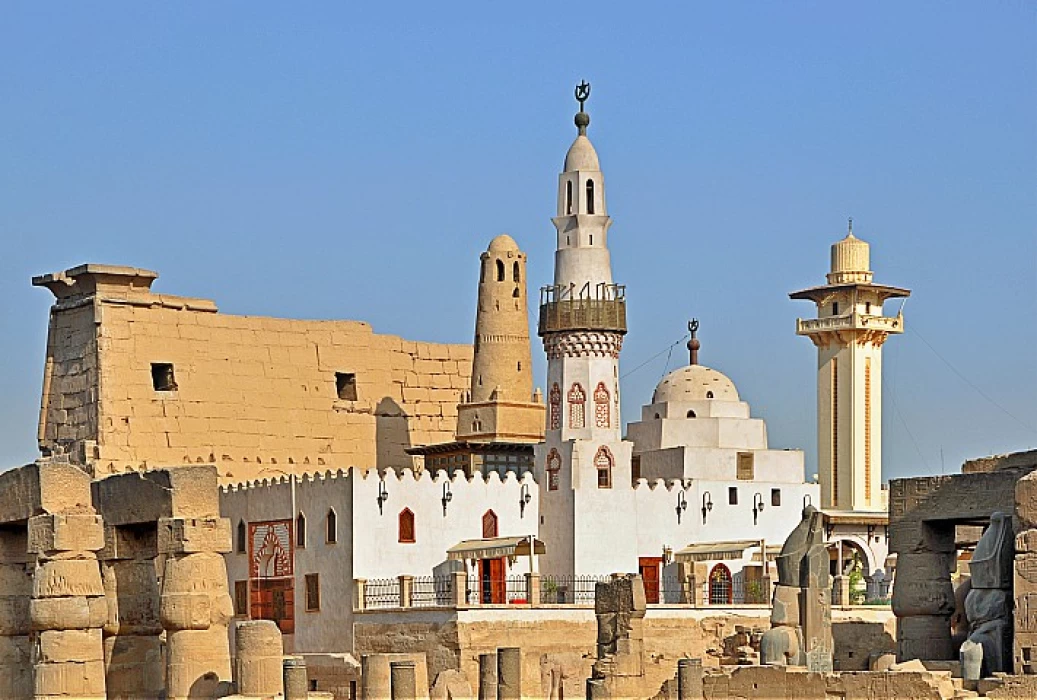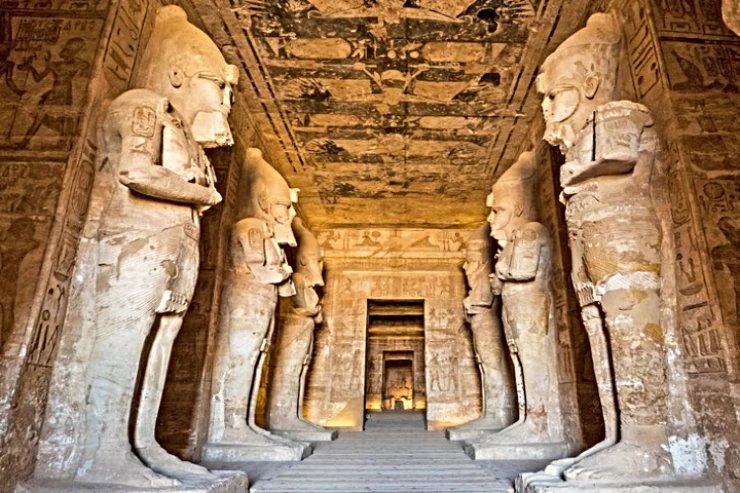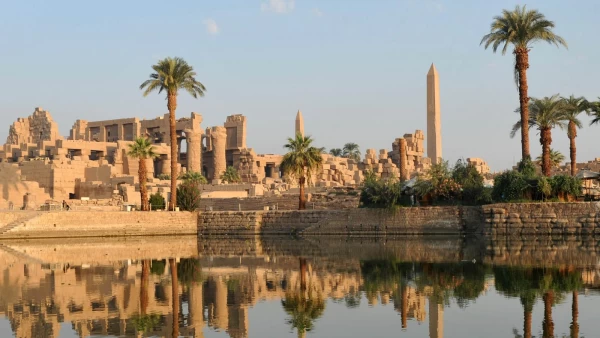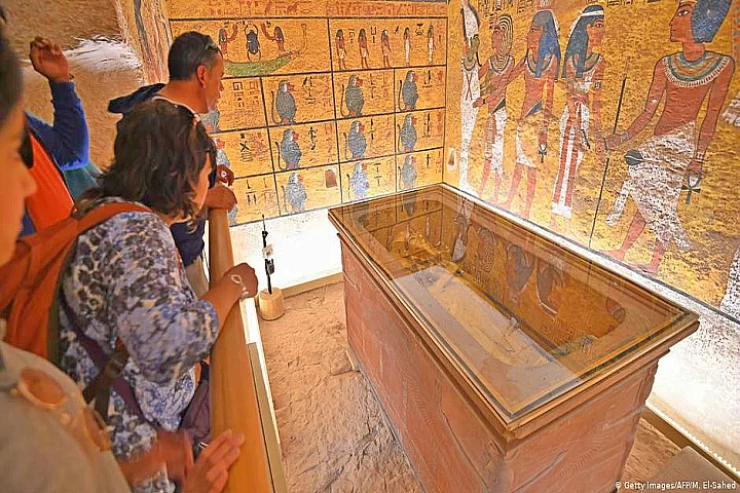
Abu El-Haggag Mosque in Luxor
Abu El-Haggag Mosque in Luxor
There is a long list of mosques of the righteous and the Household of the Messenger of God, and in Upper Egypt, in the heart of Luxor Governorate, there is the most famous and oldest historical mosque of one of the righteous, the Sidi Abu al-Hajjaj Luxor Mosque, which is located in the arms of the Luxor Temple and overlooks the Nile Corniche.
It was built by Abu al-Hajjaj al-Qusra, who was a pole of Sufism in his lifetime, and the al-Hajjaj family after him became flags in Sufism and Islamic religion. About the story of the owner of the mosque, Sheikh Mubarak Ali, the imam of the mosque, says that the knower of God, Abu al-Hajjaj al-Luxor, is “Yusuf bin Abd al-Rahim bin Isa al-Zahid,” who settled in Luxor and belonged to a generous and well-off family known for piety and goodness, and his father was a great position in the Abbasid state, and his lineage ends with our master Hussein bin Ali, may God be pleased with them.
The sheikh was born in the early sixth century AH in the city of Baghdad, during the era of the Abbasid Caliph al-Muqtafi Amr Allah, where my master left official work and dedicated to science, asceticism and worship. Abu al-Hajjaj had a council of knowledge where people came from everywhere, and he left a scientific legacy, one of the most famous of which is his poetic system on the science of monotheism, which is located in 99 chapters and consists of 1333 verses of poetry.


















